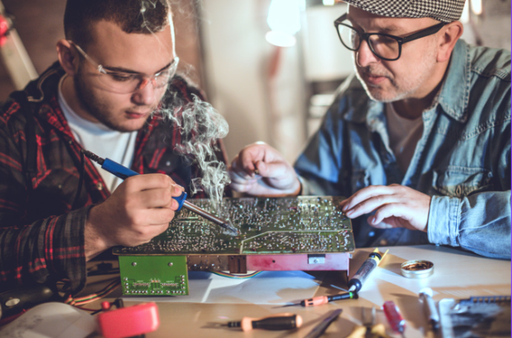Reach new heights
Start your online course today!

Unlock the world of electronics by mastering the art of Printed Circuit Board (PCB) Design and Testing. This comprehensive e-learning course is designed for students, hobbyists, and professionals aiming to build a strong foundation in PCB layout, design tools, fabrication processes, and testing techniques.
Throughout the course, learners will gain hands-on experience with industry-standard tools and workflows used in real-world PCB development. Starting with basic concepts and progressing to advanced design techniques, this course bridges theoretical knowledge with practical skills needed for prototype development and product design.
The testing modules equip learners with essential skills to identify, analyze, and troubleshoot common PCB faults, ensuring functionality and reliability before production.


The Internet of Things (IoT) is the network of ordinary objects that are equipped with electronics, software, and sensors and are connected to the internet to share and gather data without requiring human intervention.
In the context of the Internet of Things, "things" refers to anything and everything that is connected to or accessed over the Internet in daily life.
The
AI- and ML-based Internet of Things (IoT) refers to the convergence of intelligent algorithms with connected physical devices to create systems capable of learning, adapting, and making autonomous decisions. These systems go beyond simple data collection; they can analyze vast amounts of real-time data, detect patterns, predict future outcomes, and trigger actions without human intervention.
